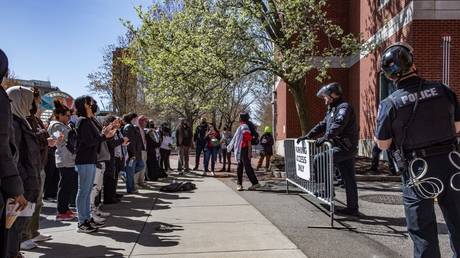Down and Out in Boston

Sponsored by The Writers’ Institute at CUNY
Our April 4 issue is now online, with Erin Maglaque on miracles, Christian Caryl on Alexey Navalny’s legacy, Miranda Seymour on Lord Byron’s reputation, Jason DeParle on seeing homeless people, Daphne Merkin on Barbra, Eric Foner on civil rights and the courts, Trevor Jackson on crashes and slumps, James Quandt on the films of Nuri Bilge Ceylan, Phillip Lopate on Robert Louis Stevenson the essayist, Margaret Scott on the corruption of democracy in Indonesia, poems by Callie Siskel and Michael Robbins, and much more.
Jason DeParle
Sisyphus on the Street
Tracy Kidder’s portrait of a doctor and his homeless patients offers personhood to people many Americans have trained themselves not to see.
Daphne Merkin
The Way She Was
“I never thought I was great,” Barbra Streisand writes in her capacious memoir, but the truth seems to be that for a large part of her life she flirted with the possibility that she was.
Margaret Scott
Indonesia’s Corrupted Democracy
Behind the victory of his chosen successor in February’s elections lies a complicated story of how outgoing President Joko Widodo has co-opted much of Indonesian society while consolidating immense power.
Miranda Seymour
A Hectic Life
The bicentenary of Lord Byron’s death is an opportunity to ask what a witty dandy with the flamboyant attitudes of a raucously chauvinistic age can offer today’s world.
The Critic and Her Publics
In the fourth episode of the podcast series The Critic and Her Publics, Merve Emre talks with Anahid Nersessian about Romantic poetry, the difference between writing for academic and public audiences, and Sylvia Plath’s “On the Difficulty of Conjuring Up a Dryad.”
The Review is collaborating with Lit Hub to publish transcripts and recordings of The Critic and Her Publics. In a series of conversations at Wesleyan University, Emre talks with some of today’s sharpest working critics about their careers and methodology, and then asks them to close-read a text that they haven’t seen before.
Anahid Nersessian, interviewed by Merve Emre
The Channeler
“One of my aims is to create a space where a reader can take twenty minutes to engage with an object. Not to be too idyllic about it, but to me that’s freedom.”
NYRSeminars: Merve Emre on Lolita
Special Offer
Subscribe for just $1 an issue
Politics Literature Arts Ideas
You are receiving this message because you signed up
for email newsletters from The New York Review.


